Timely Disclosure
“The defendant moves the court for entry of an Order dismissing the portions of the plaintiff’s Amended Complaint as more specifically outlined in paragraphs (c) and (d) of the “Therefore” clause of said Amended Complaint. Plaintiff cannot establish as a matter of law that the defendant violated the provisions of the United States Constitution; N.C.G.S. § 15A-282, N.C.G.S. § 15A-903(a)(1) and N.C.G.S. § 15A- 903(a)(2); or the June 22, 2006 Order.”
“Man kills his mother and father, then asks the court for Mercy because he's an orphan.
“Nifong has filed papers that create the civil version of that cheeky defense.
“Loosely translated, his first position is that the complaint must be dismissed because he can't possibly have deprived the defendants of due process in that the process isn't over yet and it might be cured by the good efforts of others. To say the same thing another way, even accepting that he has done everything of which he is accused, he didn't screw up the trial of the defendants because the trial hasn't taken place yet.”
“This court now holds that Rule 3.8(d) contains a materiality standard requiring a prosecutor to disclose exculpatory, outcome-determinative evidence that tends to negate the guilt or mitigate the punishment of the accused. We further hold that, to fulfill the “timely” disclosure requirement, if evidence is material to the outcome of the trial, then the prosecutor must disclose that evidence in advance of the next critical stage of the proceeding – whether the evidence would particularly affect that hearing or not.”






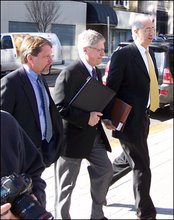
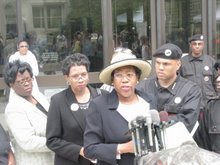
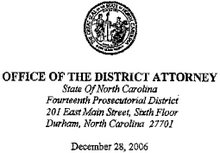
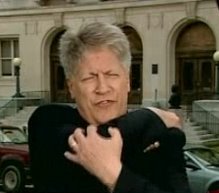

























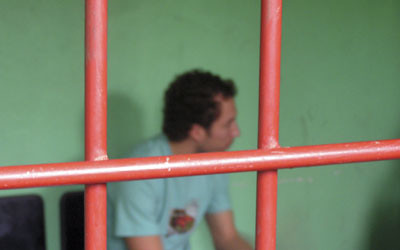



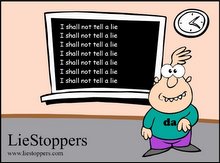






1 comment:
I'm curious about one thing: Could Mr. Nifong possibly be any more disgusting?
Post a Comment